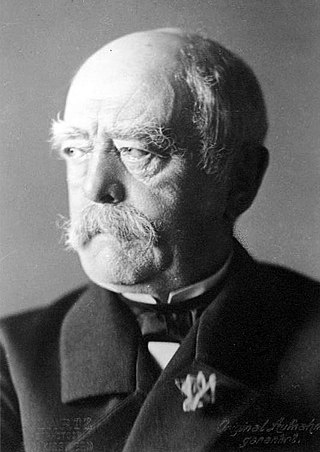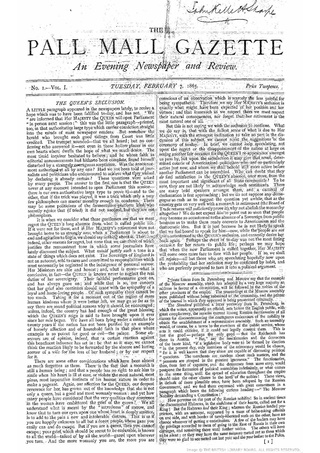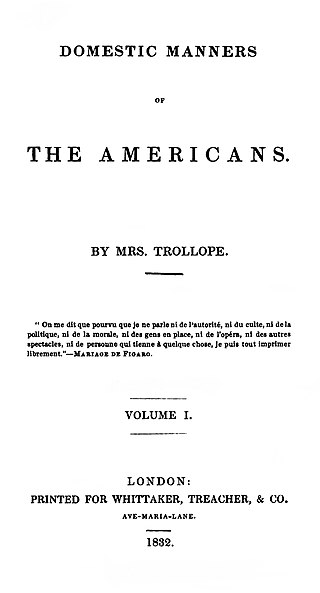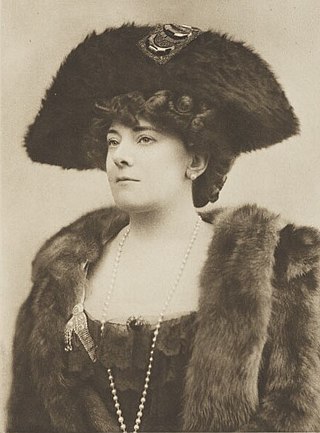Related Research Articles

Otto, Prince of Bismarck, Count of Bismarck-Schönhausen, Duke of Lauenburg, born Otto Eduard Leopold von Bismarck, was a Prussian and later German statesman and diplomat. From his origins in the upper class of Junker landowners, Bismarck rose rapidly in Prussian politics, and from 1862 to 1890 he was the minister president and foreign minister of Prussia. Before his rise to the executive, he was the Prussian ambassador to Russia and France and served in both houses of the Prussian parliament. He masterminded the unification of Germany in 1871 and served as the first chancellor of the German Empire until 1890, in which capacity he dominated European affairs. He had served as chancellor of the North German Confederation from 1867 to 1871, alongside his responsibilities in the Kingdom of Prussia. He cooperated with King Wilhelm I of Prussia to unify the various German states, a partnership that would last for the rest of Wilhelm's life. The King granted Bismarck the titles of Count of Bismarck-Schönhausen in 1865 and Prince of Bismarck in 1871. Bismarck provoked three short, decisive wars against Denmark, Austria, and France. Following the victory against Austria, he abolished the supranational German Confederation and instead formed the North German Confederation as the first German national state, aligning the smaller North German states behind Prussia, while excluding Austria. Receiving the support of the independent South German states in the Confederation's defeat of France, he formed the German Empire – which also excluded Austria – and united Germany.

Anthony Trollope was an English novelist and civil servant of the Victorian era. Among his best-known works is a series of novels collectively known as the Chronicles of Barsetshire, which revolves around the imaginary county of Barsetshire. He also wrote novels on political, social, and gender issues, and other topical matters.

Robert Arthur Talbot Gascoyne-Cecil, 3rd Marquess of Salisbury was a British statesman and Conservative politician who served as Prime Minister of the United Kingdom three times for a total of over thirteen years. He was also Foreign Secretary before and during most of his tenure. He avoided alignments or alliances, maintaining the policy of "splendid isolation".

German New Guinea consisted of the northeastern part of the island of New Guinea and several nearby island groups and was the first part of the German colonial empire. The mainland part of the territory, called Kaiser-Wilhelmsland, became a German protectorate in 1884. Other island groups were added subsequently. The Bismarck Archipelago, and the North Solomon Islands were declared a German protectorate in 1885; in the same year the Marshall Islands were bought from Spain for $4.5 million by the Hispano-German Protocol of Rome; Nauru was annexed to the Marshall Islands protectorate in 1888, and finally the Caroline Islands, Palau, and the Mariana Islands were bought from Spain in 1899. German Samoa, though part of the German colonial empire, was not part of German New Guinea.
The Chronicles of Barsetshire is a series of six novels by English author Anthony Trollope, published between 1855 and 1867. They are set in the fictional English county of Barsetshire and its cathedral town of Barchester. The novels concern the dealings of the clergy and the gentry, and the political, amatory, and social manoeuvrings that go on among them.

The Pall Mall Gazette was an evening newspaper founded in London on 7 February 1865 by George Murray Smith; its first editor was Frederick Greenwood. In 1921, The Globe merged into The Pall Mall Gazette, which itself was absorbed into The Evening Standard in 1923.
Klaus Hildebrand is a German liberal-conservative historian whose area of expertise is 19th–20th-century German political and military history.

Domestic Manners of the Americans is a two-volume travel book by Frances Milton Trollope, published in 1832, which follows her travels through America and her residence in Cincinnati, at the time still a frontier town.
The Revolution was a newspaper established by women's rights activists Susan B. Anthony and Elizabeth Cady Stanton in New York City. It was published weekly between January 8, 1868, and February 17, 1872. With a combative style that matched its name, it primarily focused on women's rights, especially prohibiting discrimination against women's suffrage in the United States, and women's suffrage in general. It also covered other topics, such as politics, the labor movement, and finance. Anthony managed the business aspects of the paper, while Stanton was co-editor along with Parker Pillsbury, an abolitionist and a supporter of women's rights.
The Kreuzzeitung was a national daily newspaper published between 1848 and 1939 in the Kingdom of Prussia and then during the German Empire, the Weimar Republic and into the first part of the Third Reich. The paper was a voice of the conservative upper class, although it was never associated with any political party and never had more than 10,000 subscribers. Its target readership was the nobility, military officers, high-ranking officials, industrialists and diplomats. Because its readers were among the elite, the Kreuzzeitung was often quoted and at times very influential. It had connections to officials in the highest levels of government and business and was especially known for its foreign reporting. Most of its content consisted of carefully researched foreign and domestic news reported without commentary.

Dame Fanny Lucy Houston, Lady Houston, Baroness Byron was a British philanthropist, political activist and suffragist.

The Pallisers is a 1974 BBC television adaptation of Anthony Trollope's Palliser novels. Set in Victorian era England with a backdrop of parliamentary life, Simon Raven's dramatisation covers six of Anthony Trollope's novels and follows the events of the characters over two decades.

Ceterum (autem) censeo Carthaginem esse delendam, often abbreviated to Carthāgō dēlenda est, is a Latin oratorical phrase pronounced by Cato the Censor, a politician of the Roman Republic. The phrase originates from debates held in the Roman Senate prior to the Third Punic War between Rome and Carthage. Cato is said to have used the phrase as the conclusion to all his speeches to push for the war.

The Parish Church of Saint Materiana at Tintagel is a Church of England parish church in the Church of England Diocese of Truro in Cornwall, England, UK. It stands on the cliffs between Trevena and Tintagel Castle and is listed Grade I.
The American Senator is a novel written in 1875 by Anthony Trollope. Although not one of Trollope's better-known works, it is notable for its depictions of rural English life and for its many detailed fox hunting scenes. In its anti-heroine, Arabella Trefoil, it presents a scathing but ultimately sympathetic portrayal of a woman who has abandoned virtually all scruples in her quest for a husband. Through the eponymous Senator, Trollope offers comments on the irrational aspects of English life.
The Ballarat Star was a newspaper in Ballarat, Victoria, Australia, first published on 22 September 1855. Its publication ended on 13 September 1924 when it was merged with its competitor, the Ballarat Courier.

The Vicar of Bullhampton is an 1870 novel by Anthony Trollope. It is made up of three intertwining subplots: the courtship of a young woman by two suitors; a feud between the titular Broad church vicar and a Low church nobleman, abetted by a Methodist minister; and the vicar's attempt to rehabilitate a young woman who has gone astray.
John Douglas Cook (1808?–1868) was a Scottish journalist, known as the founding editor of the Saturday Review.

The Echo, founded in 1868 in London by Cassell, Petter, Galpin & Co., was London's first halfpenny evening newspaper. It was published daily except on Sunday. Sometimes its Saturday edition appeared under the name The Cricket Echo or The Football Echo. Issue Number 1 appeared on 8 December 1868. The Echo ceased publication with Issue Number 11,391 on 31 July 1905.
References
- ↑ Schmidt, Barbara Quinn, ‘Cook, John Douglas (1808?–1868)’, Oxford Dictionary of National Biography, Oxford University Press, 2004, accessed 4 Jan 2008
- ↑ Dyer, Peter (2005) Tintagel: a portrait of a parish. Cambridge: Cambridge Books ISBN 0-9550097-0-7; pp. 422–423
- ↑ Andrews, Alexander (1859) Chapters in the History of British Journalism, pp. 232–34
- ↑ Fielding, K. J. (1982) "Trollope and the Saturday Review", Nineteenth-Century Fiction, Vol. 37, No. 3 (Dec., 1982), pp. 430–442.
- ↑ Roberts, Andrew (1999) Salisbury: Victorian Titan, p. 39.
- ↑ Umpenhour, Charles Merlin Freedom, a Fading Illusion
- ↑ Kelley, Donald R. Frontiers of history
- ↑ text at Wilson Library, University of Minnesota, Saturday Review, 1 February 1896, p.15
- ↑ "Barry, Sir Gerald", Oxford Dictionary of National Biography
- ↑ Crompton, Teresa (2020). Adventuress, The Life and Loves of Lucy, Lady Houston. The History Press.
- Bevington, M. M. (1941) The Saturday Review, 1855–1868: Representative Educated Opinion in Victorian England. New York: Columbia University Press
- "Lady & Lion". Time Magazine . 1933-11-27. Archived from the original on November 22, 2010. – Monday, Nov. 27, 1933
- Time Magazine – Monday, Jan. 25, 1937